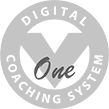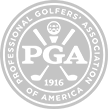“True” Lies Can Help Your Golf Game
True” Lies Can Help Your Golf Game
by Dr. T. J. Tomasi
Keiser University College of Golf Senior Faculty and Director of Research

A high percentage of people fed false details about their childhood can be convinced that things happened to them even though they didn’t. Dr. Henry Roediger, of Washington University in St. Louis, has documented the willingness of people to recall things that might have happened – but really didn’t.
The brains of these subjects physically changed, and once the ersatz memories were installed, they couldn’t tell the difference between the real and the false.
Normally, it’s dangerous to load your brain with delusions; but what if, as a strategy, you create false experiences that are good for you?
In fact, Roediger’s research proves that there is biology of false memories, and if you know how it works, you can use it to your advantage to create “good lies” – in our case, lies that build a better golf game.
It’s best to do this with shots you have the ability to hit, but often fail to pull off under pressure.
It’s not helpful to imagine a 300-yard drive if you simply can’t hit one – imaging works best for the “possible.”
You can cultivate the power of imagery using a simple tool called meditation.
Brent Wilson, a psychologist at the University of California, San Diego, describes his research: “Our results highlight an unintended consequence of mindfulness meditation: When memories of imagined and real experiences too closely resemble each other, people can have difficulty determining which is which, and this can lead to falsely remembering imagined experiences as actual experiences.”
This is one reason lie detector tests are not admissible in court.
The trance-like state that Ben Hogan entered while he played is legendary.
When asked after a round if Hogan talked to him, a competitor said “Yes, but all he said all day was ‘you’re away’.”
For every important round, Hogan imagined every shot before the round, using a type of meditation.
But he wasn’t done running his brain once he posted a score, because he replayed in his mind every shot until the round was perfect. This is too much work for most golfers, even though everyone has the mental power to do it.
This lack of mental effort is one reason there are so few champions.
While you may not be able to hit it like Hogan, you can use your brain like he did.
Let’s say you hit some bad drives during your round, and post-round it’s time to re-write your history.
Close your eyes and relax using deep breathing.
Imagine yourself addressing the ball with a solid stance, and then striking the ball with a pure contact that sends it to your target.
The more precise you make your image, the more effective your mental practice.
With absolute clarity, you view the scene in all its precision without any fuzzy edges.
You focus in as if you were watching it through a telescopic lens, where you see particulars like how you’re dressed and the size of the ball.
Next, its time to experience what it feels like to be hitting a good shot.
This kind of mental imaging where you feel, see and hear good shots isn’t just undocumented pie-in-the-sky stuff – science tells us it really works.
Using brain scan studies at the Institute of Neurology in London prove when you imagine multi-sensorial images like your golf swing, the mental picture turns on most of the brain networks and muscle groups used for a real swing.
And, the more you do this imaging, the stronger the neural footprints become.
Since your central nervous system can’t tell the difference between a perfectly imagined event and a real one, the better you are at creating life-like images of good shots, the easier it is to implant them as real.
Of course this technique alone isn’t sufficient to make you a good golfer – practicing until you can hit good shots in still the key.
But, being able to alter your tracks of failure by changing them to tracks of excellence will help you develop a solid game much faster.
Takeaway: “The successful man (golfer) lies to himself; the liar only to others” said Nietzsche – he would have made a great golf coach.
If you enjoyed this golf tip, here’s how you can get even more. Contact Keiser University College of Golf about a golf degree.














